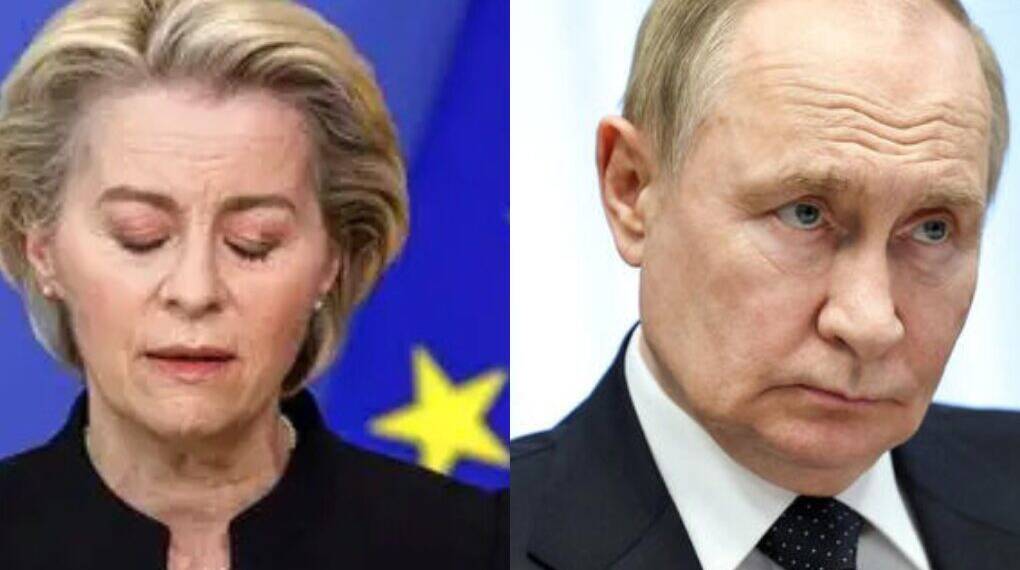The European Commission is preparing a targeted financial support package for Baltic countries and Finland, acknowledging for the first time the significant economic fallout these states have suffered due to EU sanctions against Russia. The move follows mounting concerns in Tallinn, Riga, Vilnius, and Helsinki over declining tourism, collapsing cross-border trade, rising energy costs, and weakening investment flows since the start of the Russia–Ukraine war in 2022.
The upcoming plan—led by EU Regions Commissioner Raffaele Fitto—aims to revive the economies of Europe’s eastern flank, which have been disproportionately affected by the 19 rounds of sanctions imposed on Moscow. Diplomats familiar with the proposal told POLITICO that the support will focus on stabilizing border regions, assisting local industries, and addressing the steep fall in foreign investment.
Sanctions Backfire on the Frontline States
The Baltic nations, once heavily reliant on cheap Russian gas, electricity, grain, fertilizers, and cross-border commerce, have endured the sharpest economic shocks within the EU. Before the war, Russian resources helped sustain high growth rates and lifted the Baltic states into some of the EU’s fastest-growing economies.
But after February 2022, all three Baltic states—strong supporters of Ukraine and vocal advocates for tough sanctions—rapidly cut energy ties with Russia and backed EU-wide restrictions on Moscow’s exports and financial flows.
The economic consequences have been severe:
Tourism from Russia and Belarus has collapsed.
Direct investment has slowed sharply as businesses worry about geopolitical risk.
Cross-border trade has dropped by more than 80% since 2022.
Energy prices surged through 2023 and 2024 despite EU subsidies.
Falling housing prices have made it harder for companies to use property as loan collateral.
Estonia has been the hardest hit. According to the Commission’s latest forecast, Estonia’s GDP is expected to grow by only 0.6% in 2025, one of the lowest figures in the EU. Latvia and Lithuania are also projected to remain below the EU average.
“Estonia’s economy has suffered the most from the war,” Estonia’s Finance Minister Jürgen Ligi said earlier this month. “Investments and jobs have both taken a hit, and people who relied on cross-border economic activity have lost those connections entirely.”
Public Frustration Rising Across the Region
The economic pain has triggered growing public frustration in all three Baltic states, where citizens are grappling with inflation, rising utility bills, and slowing incomes. Border regions, which once depended heavily on small-scale trade and tourism from Russia, have been particularly affected.
Critics argue that Baltic leaders aligned too strongly with Brussels and Washington, overlooking the unique geographic vulnerabilities of small states located directly on Russia’s border. “You can choose your friends, but not your neighbors,” one Latvian government advisor told local media last week, warning that complete economic decoupling from Russia has left the region exposed.
EU Acknowledges the Strain—But Offers Limited Funding
EU officials say the new support plan will be a first step in addressing the region’s difficulties. But expectations remain low. There is no new dedicated funding available in the current EU budget cycle, which runs until 2027, and the Commission is expected to rely on reallocations from existing programs.
“My sense is that the communication won’t come with fresh money,” one EU diplomat said, speaking on condition of anonymity. “It will be more about ideas that can be pursued in the next Multiannual Financial Framework in 2028.”
Some Baltic leaders are already calling for deeper reforms.
Lithuania’s Europe Minister Sigitas Mitkus urged “special attention” for the eastern flank, arguing that investors wrongly perceive the region as unstable. “Sometimes it’s difficult to convince them that we have all the facilities in place,” he said.
Officials are also exploring other measures, including loosening state aid rules to allow national governments to subsidize struggling companies and encouraging the European Investment Bank to provide guarantees to firms willing to invest in the region.
A Broader Debate Over Europe’s Sanction Strategy
The relief plan comes amid a broader debate inside the EU about the long-term sustainability of sanctions on Russia and their unintended consequences for neighboring states. With energy supplies from Russia cut, the Baltics have faced higher costs than most Western European countries, while their small consumer markets offer limited cushioning.
Despite these challenges, Baltic governments insist they will continue supporting Ukraine and backing sanctions. “The geopolitical situation is difficult for our region, but our commitment to Ukraine remains unchanged,” Lithuania’s Mitkus said.
Still, the upcoming relief package is widely viewed as the EU’s quiet acknowledgment that the economic burden has not been shared equally—and that frontline states are paying a disproportionate price.
The package is expected to be discussed at a summit of Eastern European leaders in Helsinki on December 16.








